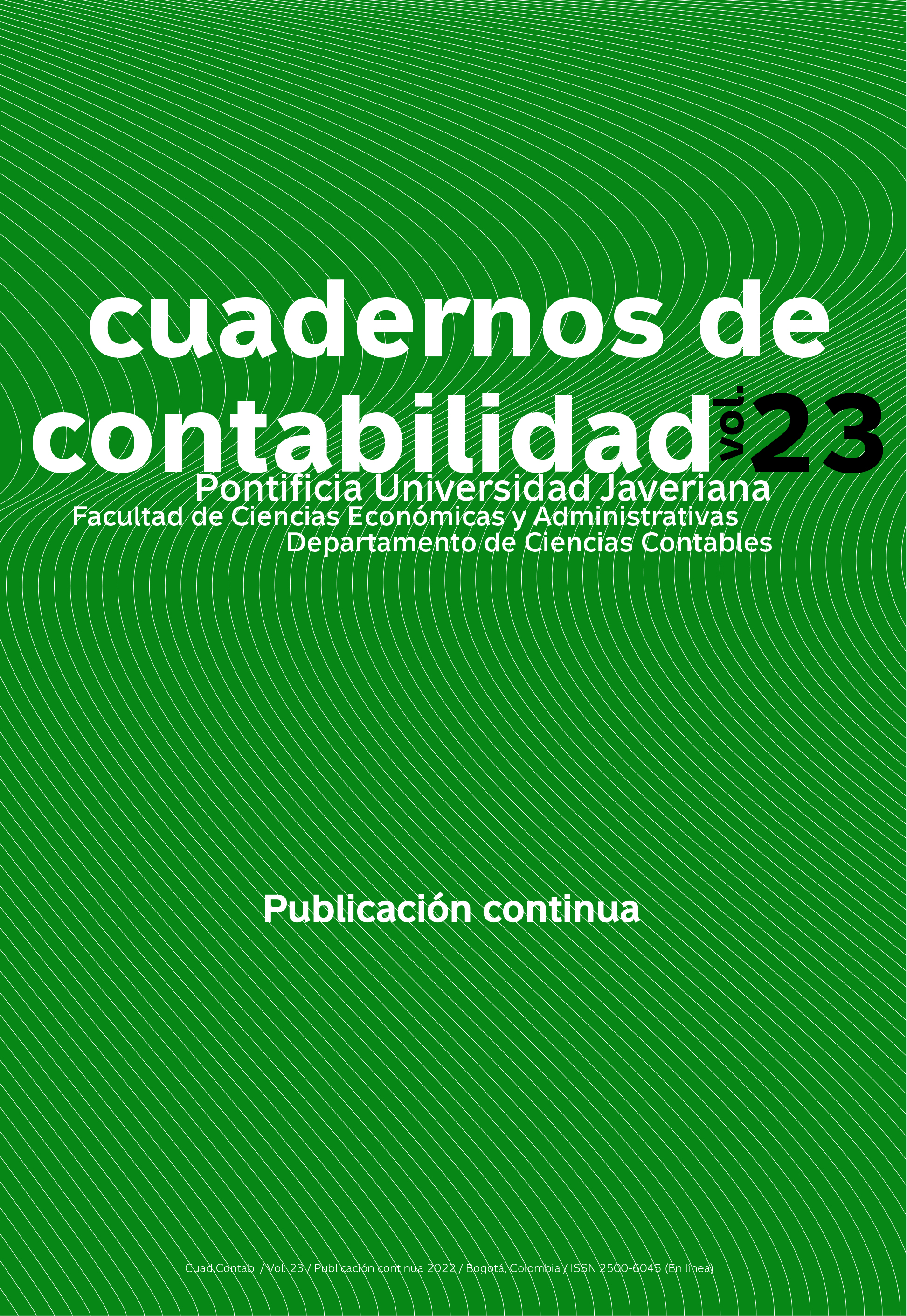Abstract
The accounting discipline is present in all human activity; to develop research in this field requires conceptual foundations located in three types of epistemologies: regional, evolutionary and naturalized. In addition, to explain and understand it, two guiding frameworks emerge, the first is the knowledge where reality is determined, and the second is the methods that favor its epistemological approach. Precisely, the objective of this paper is to solve the difficulty related to the disciplinary foundation, for this purpose a reflective debate of various authors is accessed to allow an understanding of the sociological, anthropological and axiological environments of the profession. A symbolic approach is also presented, recognizing the need to assume a critical and social position to humanize public accounting.
Aristóteles (2005). Ética a Nicómaco. C. José, Trad. Alianza Editorial S.A.
Babolin, S. (2005). Producción de sentido y filosofía de la cultura. Ed. San Pablo.
Bedard, R. (1995). Los fenómenos filosóficos del pensamiento y la práctica administrativa. Tesis doctoral. Montreal, Canadá.
Bourdieu, P. (1979). La distinction – critique sociale du jugement. Minuit.
Briones, G. (2014). Teorías de las ciencias sociales y de la educación - Epistemología. Trillas.
Del Castillo, T. J. (2008). El administrador y su entorno dentro de la administración. Limusa.
Díaz, M. (2008). Fundamentos teóricos de la contabilidad del conocimiento y su incidencia en la auditoría del capital intelectual. Quipukamayoc, 15(30), 103 - 137. https://doi.org/10.15381/quipu.v15i30.5259
Dretske, F. (1981). Knowledge and the flow of information. CSLI Publications.
Función Pública (2017, 15 de mayo). Presentación MIPG. https://www.funcionpublica.gov.co/web/mipg
Gaffikin, M. (2006). The critique of accounting theory. Australia: Faculty of Business - Accounting & Finance Working Papers. Obtenido de https://ro.uow.edu.au/accfinwp/41/
Hull, C. (1943). Principles of Behavior. Appleton.
Hume, D. (1992). Tratado de la naturaleza humana. Tomo I. México: Gernika.
James, W. (1967). Prefacio de Pragmatismo de William James. Ed. Aguilar.
Llanos, C. (2020). Didáctica de la verdad, teoría y operación. blogspot.com, 52.
Mejía, E. (2005). Introducción al pensamiento contable de Richard Mattessich. Revista Internacional Legis de Contabilidad y Auditoria, 135-174. https://www.academia.edu/25667424/Introducci%C3%B3n_al_pensamiento_contable_de_Richard_Mattessich
Merton, R. (1964). Teoría y estructura sociales. México FCE: Fondo de Cultura Económica.
Morgan, G. (1996). Imágenes de la organización. México DF: Alfa y Omega.
Muñoz, J., & Velarde, J. (2000). Compendio de epistemología. Trotta.
Posada, O. O., Gomez, S. J., & Ramirez, G. J. (2020). Análisis de los tributos e ingresos verdes el municipio de Yumbo - Valle del Cauca, Colombia, evaluados desde la perspectiva de la política pública ambiental y la política fiscal. Cuadernos de Contabilidad, 21. https://doi.org/10.11144/Javeriana.cc21.ativ
Sawarjuwono, T. (1995). Accounting language change change: a critical study of. Universidad de Wollongong.
Tascón, M. (1995). Contabilidad como disciplina científica. Contaduría. (pp. 65-112) Universidad De Antioquia.

This work is licensed under a Creative Commons Attribution 4.0 International License.
Copyright (c) 2022 Adolfo León Llanos Ceballos, Orlando Posada Orrego


